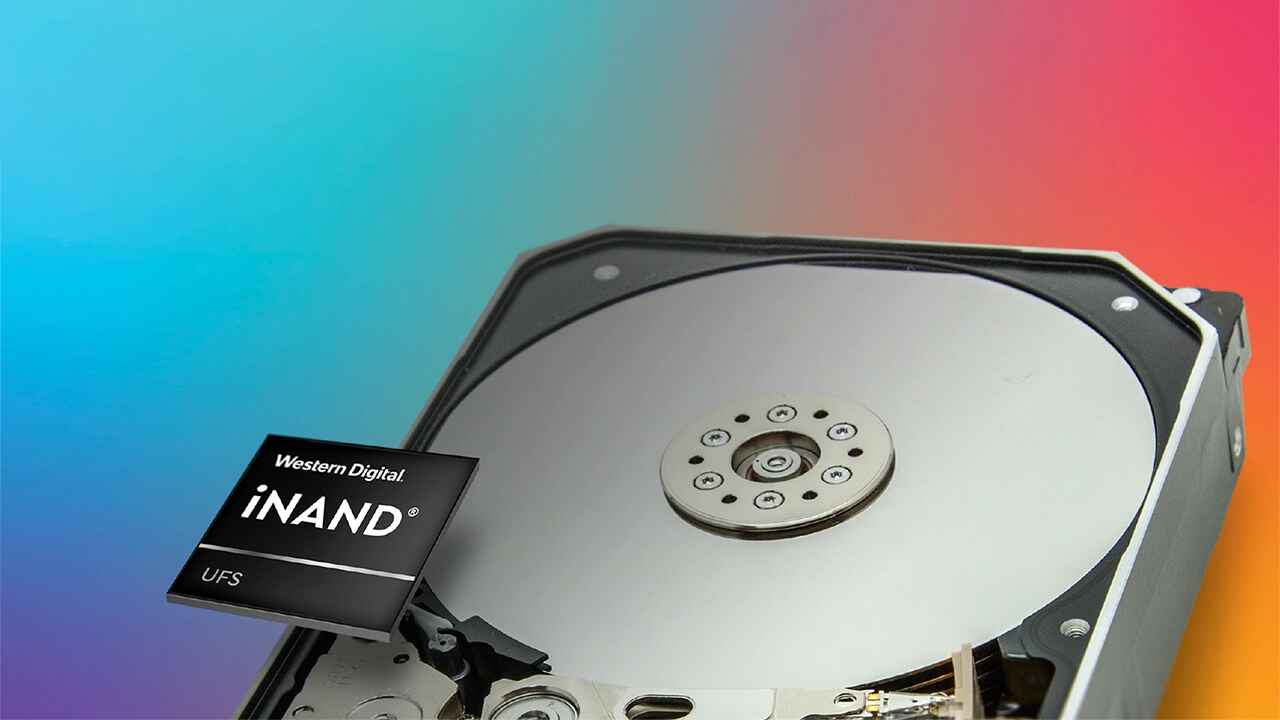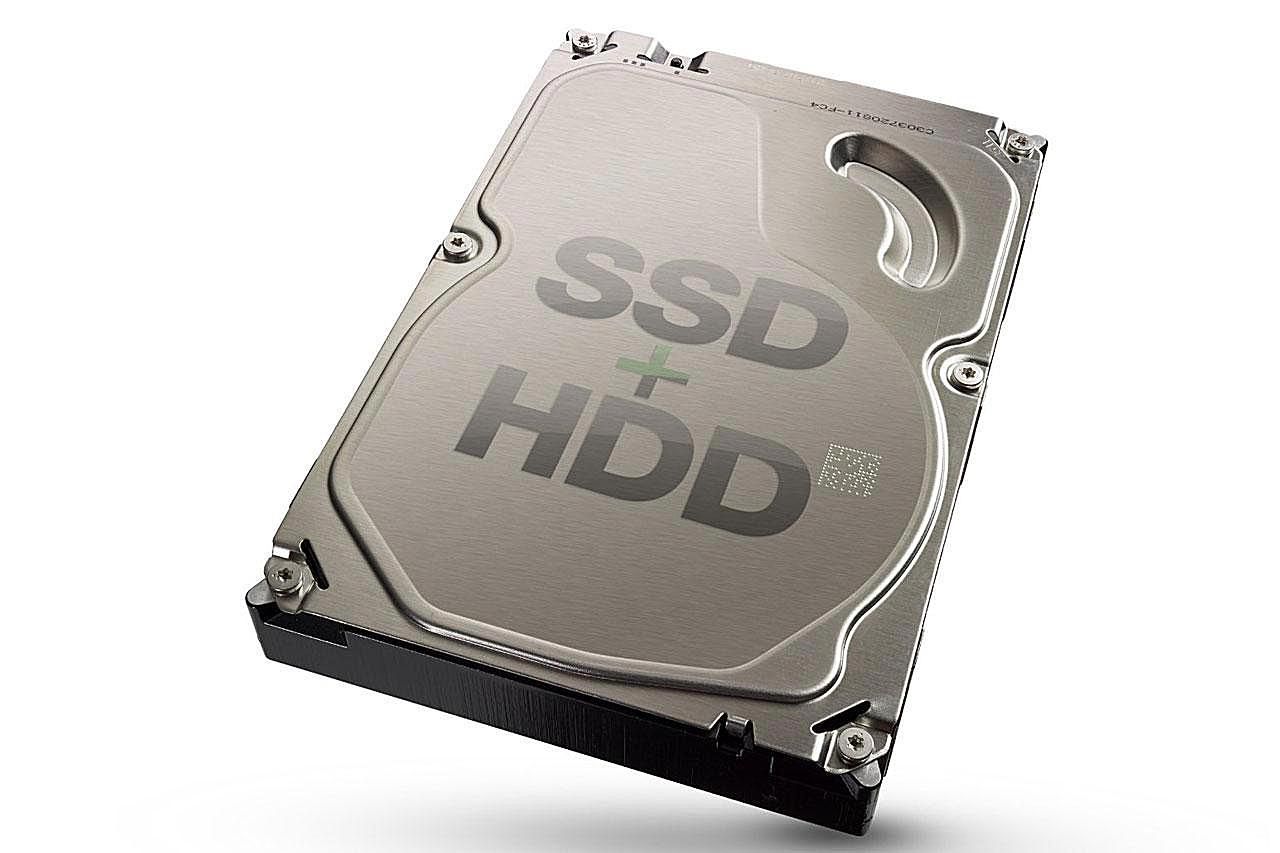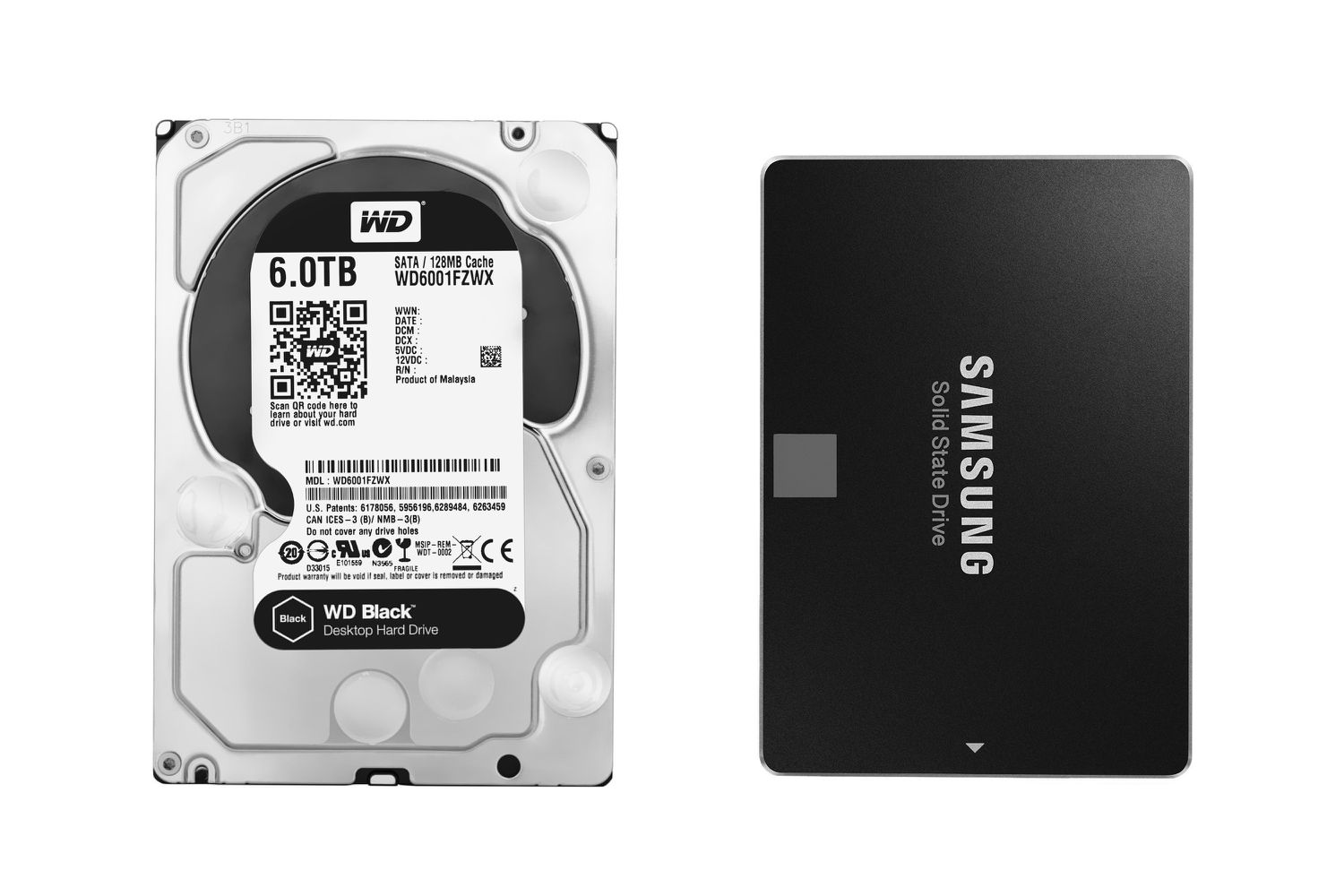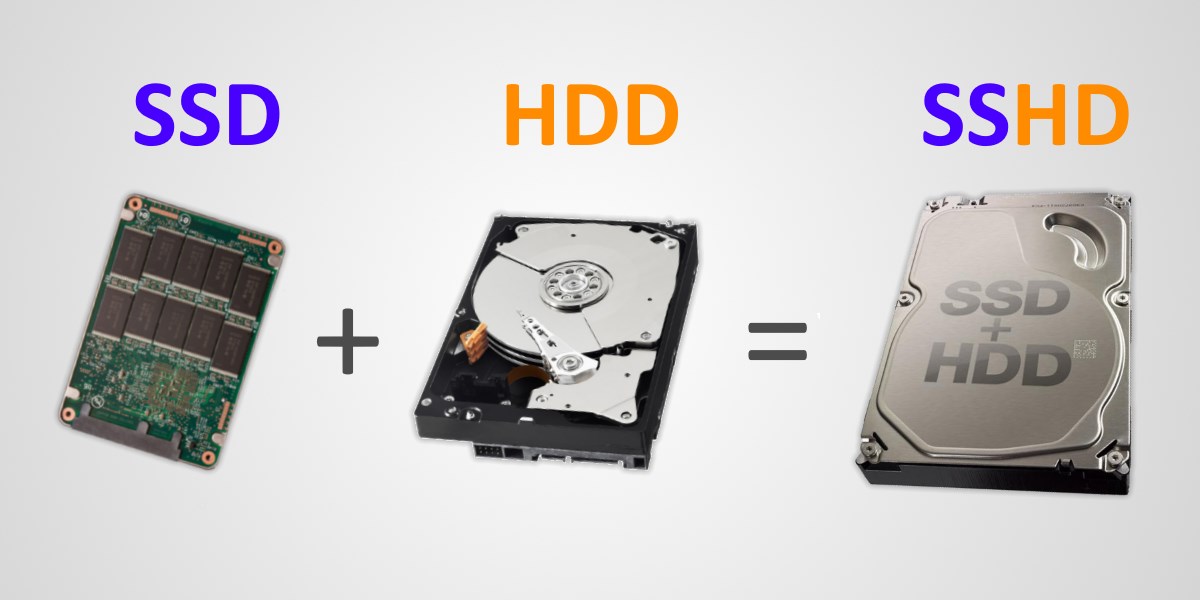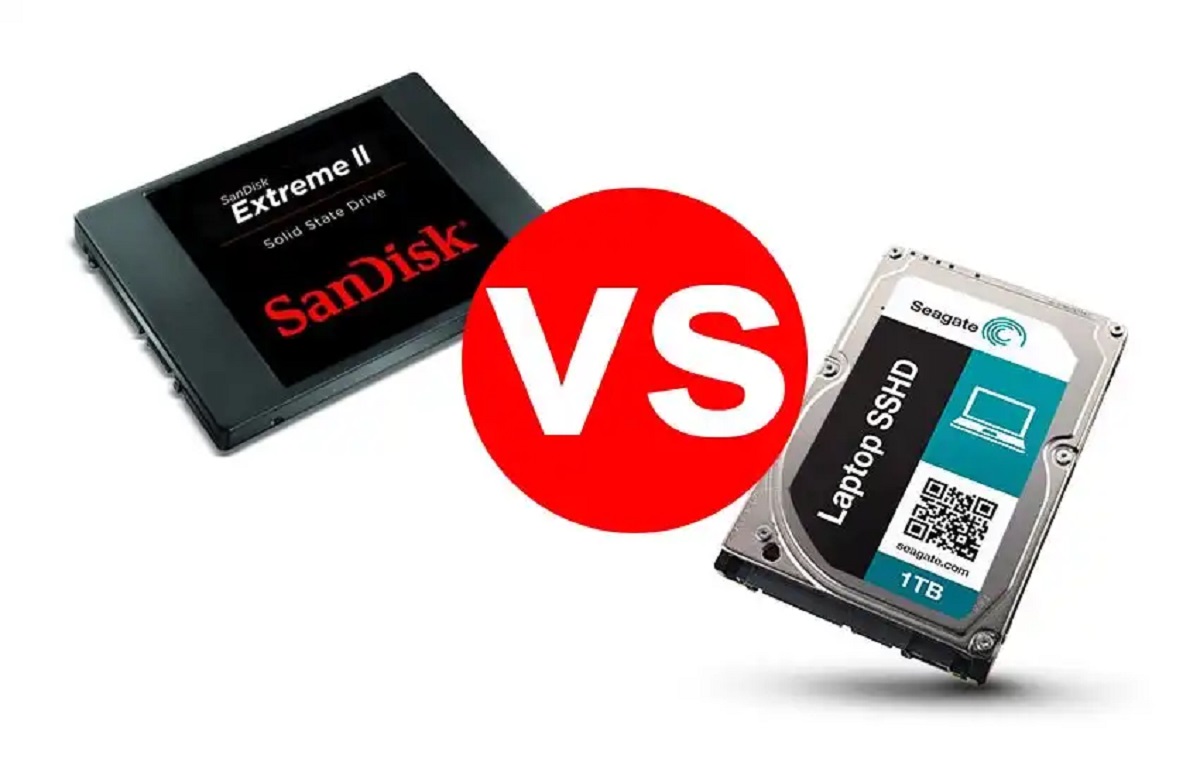Introduction
Welcome to the world of storage technology where innovations and advancements are constantly reshaping the way we store and access our data. One such innovation that has gained significant popularity in recent years is the Hybrid Hard Disk Drive (HHDD).
A Hybrid Hard Disk Drive combines the best of both worlds – the speed and performance of Solid State Drives (SSDs) and the large storage capacity of traditional Hard Disk Drives (HDDs). This unique combination makes HHDDs a compelling choice for those seeking a balance between speed and storage space.
In this article, we will delve into the world of Hybrid Hard Disk Drives and explore their inner workings, benefits, drawbacks, and how they compare to traditional HDDs and SSDs. If you’re considering upgrading your storage solution or simply want to learn more about the latest technology in the world of data storage, you’ve come to the right place.
So, without further ado, let’s dive into the fascinating world of Hybrid Hard Disk Drives. Are you ready to embark on this technological journey with us?
What is a Hybrid Hard Disk Drive?
A Hybrid Hard Disk Drive (HHDD), also known as a Solid State Hybrid Drive (SSHD), is a storage device that combines the technology of traditional Hard Disk Drives (HDDs) and Solid State Drives (SSDs). It aims to deliver the best of both worlds – the large storage capacity of HDDs and the fast performance of SSDs.
At its core, a Hybrid Hard Disk Drive consists of a traditional mechanical Hard Disk Drive with spinning platters and magnetic read/write heads, coupled with a small amount of solid-state flash memory. This flash memory acts as a high-speed cache for frequently accessed data, allowing for faster read and write operations compared to a standard HDD.
Unlike a traditional HDD, which relies solely on its mechanical components to access and transfer data, an HHDD utilizes its flash memory to store commonly accessed files and data. This means that when you access frequently used files, the HHDD can retrieve them from the flash memory rather than having to search for them on the spinning platters, resulting in significantly faster performance.
It’s important to note that the flash memory in an HHDD is typically much smaller in size compared to a dedicated SSD. While an SSD may have several gigabytes or even terabytes of flash memory, an HHDD typically has a smaller cache ranging from a few gigabytes to around 8-16GB.
The decision to use a Hybrid Hard Disk Drive is often driven by the need for a balance between storage capacity and performance. With an HHDD, users can enjoy the benefits of a larger storage capacity for their files, documents, and multimedia content, while still experiencing faster response times for frequently accessed data thanks to the flash memory cache.
How Does a Hybrid Hard Disk Drive Work?
To understand how a Hybrid Hard Disk Drive (HHDD) works, let’s take a closer look at its internal architecture and the mechanisms behind its operation.
At the heart of an HHDD is a combination of traditional hard drive components and solid-state flash memory. The spinning platters and magnetic read/write heads of a conventional hard drive handle the majority of data storage, while the flash memory acts as a cache for frequently accessed files, enhancing the overall performance of the drive.
When you first power on your computer and access files stored on an HHDD, the operating system determines which data needs to be accessed from the spinning platters and which data can be retrieved from the flash memory cache. Frequently accessed files, including operating system files, applications, and frequently used documents, are stored in the flash memory for quick retrieval.
As you continue to use your computer, the HHDD’s intelligent firmware algorithms analyze your usage patterns and dynamically determine which data should be moved to the flash memory cache. This adaptive caching mechanism ensures that the most frequently accessed data remains readily available for fast retrieval.
When you request a file that is stored in the flash memory cache, the HHDD retrieves it almost instantly, as the transfer speed of flash memory is significantly faster than that of mechanical components. This results in improved system responsiveness, reduced application load times, and faster boot-up times.
For data that is not stored in the flash memory cache, the HHDD relies on the mechanical components to access the information stored on the spinning platters. While the performance for these files may not be as fast as those stored in the flash memory, it still provides larger storage capacity compared to a dedicated solid-state drive.
In essence, the Hybrid Hard Disk Drive intelligently manages data placement, storing frequently used files in the flash memory cache for speedy retrieval and utilizing the traditional hard drive components for less frequently accessed data. This combination allows the HHDD to offer a satisfactory balance between storage capacity and performance.
Benefits of Hybrid Hard Disk Drives
Hybrid Hard Disk Drives (HHDDs) offer several advantages that make them a compelling choice for individuals and businesses looking for a storage solution that strikes a balance between storage capacity and performance.
1. Improved Performance: The inclusion of solid-state flash memory in HHDDs significantly enhances performance compared to traditional Hard Disk Drives (HDDs). By storing frequently accessed files in the flash memory cache, HHDDs can retrieve data at much faster speeds, resulting in reduced application load times and improved system responsiveness.
2. Larger Storage Capacity: HHDDs still provide a larger storage capacity compared to dedicated solid-state drives (SSDs). This is particularly beneficial for users who require ample storage space for storing files, media, and documents without sacrificing performance.
3. Cost-Effective Solution: Hybrid Hard Disk Drives offer a cost-effective storage solution for those who want the benefits of both HDDs and SSDs without the higher price tag associated with larger-capacity SSDs. HHDDs provide a balance between affordability and improved performance.
4. Seamless Integration: HHDDs can be seamlessly integrated into existing computer systems without the need for additional hardware or software modifications. They function just like traditional HDDs, making them a suitable choice for upgrading older systems or adding storage capacity to current setups.
5. Energy Efficient: Compared to its SSD counterpart, an HHDD consumes less power during operation. The optimization of data storage and retrieval in HHDDs minimizes the overall power consumption, resulting in longer battery life for laptops and lower energy bills for desktop users.
6. Versatility: Hybrid Hard Disk Drives are versatile storage solutions that can be utilized in a wide range of devices, including laptops, desktops, gaming consoles, and multimedia servers. They provide the flexibility to store and access large amounts of data without compromising on performance.
These benefits make Hybrid Hard Disk Drives an attractive storage solution for individuals and businesses alike. Whether you’re a casual user looking to enhance your computer’s performance or a professional in need of a cost-effective storage solution, HHDDs offer a compelling combination of speed, capacity, and affordability.
Drawbacks of Hybrid Hard Disk Drives
While Hybrid Hard Disk Drives (HHDDs) offer a unique blend of performance and storage capacity, they are not without their limitations. Here are some drawbacks to consider when evaluating the suitability of an HHDD for your storage needs.
1. Limited SSD Cache: The flash memory cache in HHDDs is relatively small compared to dedicated Solid State Drives (SSDs). This limited cache size means that only a portion of your frequently accessed data can be stored in the flash memory, potentially leading to slower performance for less frequently used files.
2. Slower Than SSDs: While HHDDs offer improved performance compared to traditional Hard Disk Drives (HDDs), they still fall short of the lightning-fast speeds offered by dedicated SSDs. SSDs have faster data transfer rates and virtually no mechanical components, resulting in quicker access times and smoother multitasking capabilities.
3. Higher Cost Per Gigabyte: Hybrid Hard Disk Drives are generally more expensive per gigabyte compared to traditional HDDs. While they offer improved performance, this performance boost comes at a higher cost. If you prioritize affordability over speed, an HHDD may not be the ideal choice.
4. Mechanical Components: Unlike SSDs, which have no moving parts, HHDDs still rely on mechanical components, such as spinning platters and read/write heads. This mechanical nature makes them more susceptible to shock, vibration, and potential failure over time. It’s essential to handle an HHDD with care to avoid damaging the sensitive mechanical components.
5. Limited Lifespan: The flash memory used in HHDDs has a finite number of write cycles before it may start to degrade. While this degradation is typically gradual and may not affect most users during the device’s expected lifespan, it is something to consider for heavy users who frequently write and overwrite large amounts of data.
6. Not Ideal for High-Performance Needs: While HHDDs offer a good balance between storage capacity and performance, they may not be the best choice for users with demanding tasks, such as gaming, video editing, or professional graphics work. For such applications, dedicated SSDs or even RAID configurations with multiple SSDs may be more suitable.
It’s important to carefully assess your specific needs and priorities when considering an HHDD. While they have their drawbacks, HHDDs can still be an excellent choice for individuals seeking a cost-effective storage solution that provides a noticeable performance boost over traditional HDDs.
Comparison to Traditional Hard Disk Drives
When considering a storage option, it’s essential to compare Hybrid Hard Disk Drives (HHDDs) to traditional Hard Disk Drives (HDDs) to determine which option best suits your needs. Let’s explore the key differences between the two:
1. Performance: HHDDs offer significantly improved performance over HDDs. With their solid-state flash memory cache, HHDDs can retrieve frequently accessed data more quickly, resulting in faster boot times, shorter application load times, and improved overall system responsiveness. HDDs, on the other hand, rely solely on mechanical components, leading to slower data access speeds.
2. Storage Capacity: HDDs have the advantage when it comes to storage capacity. They are available in larger storage capacities, making them the go-to solution for users who require vast amounts of storage space for their files, documents, and multimedia content. HHDDs, while offering a larger capacity than dedicated solid-state drives (SSDs), still have smaller storage capacities compared to HDDs.
3. Cost: Traditional HDDs are generally more affordable per gigabyte compared to HHDDs. If your primary concern is storing large amounts of data at an affordable price, HDDs may be the better option. However, if you’re willing to invest a bit more for improved performance, HHDDs offer a balance between cost and speed.
4. Reliability: Both HDDs and HHDDs rely on mechanical components, making them susceptible to damage from shock, vibration, and wear and tear over time. While the flash memory cache in HHDDs helps reduce the risk of data loss, it’s important to keep backups of your important files to mitigate the chances of data loss due to potential hardware failure.
5. Energy Efficiency: In terms of power consumption, HHDDs tend to be more energy efficient than HDDs. The optimization of data storage and retrieval in HHDDs results in lower power consumption, leading to longer battery life for laptops and reduced energy bills for desktop users compared to HDDs.
6. Compatibility: HHDDs are designed to be compatible with existing systems and require no additional hardware or software modifications. They can seamlessly replace traditional HDDs without any compatibility issues, making them a convenient upgrade option for those looking to enhance their system’s performance.
Ultimately, the choice between an HHDD and an HDD depends on your specific needs. If you require a large storage capacity at an affordable price and are not concerned about performance, an HDD may be the more suitable option. However, if you value improved performance and are willing to invest a bit more, an HHDD offers a balance between speed and storage capacity.
Comparison to Solid State Drives
When choosing a storage option, it’s important to compare the benefits and drawbacks of Hybrid Hard Disk Drives (HHDDs) to Solid State Drives (SSDs). Let’s explore the key differences between the two:
1. Performance: SSDs offer unparalleled performance compared to HHDDs. With no moving parts, SSDs can deliver lightning-fast data access speeds, resulting in significantly reduced boot times, near-instantaneous application load times, and responsive multitasking capabilities. HHDDs, while offering improved performance over traditional Hard Disk Drives (HDDs), still fall short of the speed and responsiveness of SSDs.
2. Storage Capacity: HHDDs have the advantage when it comes to storage capacity. They offer larger storage capacities compared to SSDs, making them an ideal choice for users who require ample space for storing large files, multimedia content, and documents. SSDs, although typically smaller in capacity, are available in various sizes to suit different storage needs.
3. Cost: SSDs are generally more expensive per gigabyte compared to HHDDs. The higher price tag of SSDs is due to their advanced technology and faster performance. HHDDs provide a more cost-effective solution for those who want the benefits of SSD-like performance without paying the premium associated with dedicated SSDs.
4. Reliability: SSDs have an advantage in terms of reliability. Since they have no moving parts, they are more resistant to shock, vibrations, and wear and tear over time. HHDDs, while more reliable than traditional HDDs due to the incorporation of flash memory, still have mechanical components that can be prone to failure in certain conditions.
5. Energy Efficiency: SSDs are highly energy efficient compared to HHDDs. The absence of mechanical components translates to lower power consumption, leading to extended battery life for laptops and decreased power usage for desktop systems. HHDDs are more energy efficient than traditional HDDs, but they still consume more power than SSDs.
6. Compatibility: Both SSDs and HHDDs are compatible with existing systems without the need for additional hardware or software modifications. They can easily replace traditional HDDs and function seamlessly within the system.
Ultimately, the choice between an HHDD and an SSD depends on your specific needs and budget. If you prioritize performance and can afford the higher cost, an SSD will provide you with unparalleled speed and responsiveness. However, if you need a larger storage capacity at a more affordable price point, an HHDD offers a balance between speed and capacity.
Is a Hybrid Hard Disk Drive Right for You?
Now that you’re familiar with the features, benefits, and drawbacks of Hybrid Hard Disk Drives (HHDDs), it’s time to determine if an HHDD is the right choice for your storage needs. Consider the following factors to make an informed decision:
1. Performance Requirements: If you require a storage solution that offers improved performance without breaking the bank, an HHDD might be the perfect fit for you. HHDDs provide a noticeable boost in speed and responsiveness compared to traditional Hard Disk Drives (HDDs) while offering a larger storage capacity at a more affordable price than Solid State Drives (SSDs).
2. Storage Capacity: If you need a significant amount of storage space to accommodate your files, media, and documents, an HHDD is worth considering. With their larger storage capacity compared to SSDs, HHDDs can provide ample room for your data without compromising on performance.
3. Budget: HHDDs offer a more cost-effective solution compared to dedicated SSDs. If you’re on a tight budget but still want the benefits of improved performance, an HHDD allows you to strike a balance between cost and speed.
4. Usage Patterns: Consider your typical usage patterns when evaluating an HHDD. If you frequently access the same files or use specific applications that require quick data retrieval, an HHDD’s flash memory cache can significantly enhance your overall user experience. However, if you tend to work with large files or perform resource-intensive tasks, a dedicated SSD might be better suited to your needs.
5. Reliability: While HHDDs offer improved reliability compared to traditional HDDs, they still contain mechanical components that can be prone to failure. If data security and long-term reliability are critical factors for you, it might be worth considering an SSD with its solid-state technology and higher resistance to physical damage.
6. Future Upgrades: Think about your future upgrade plans. If you are planning to install an HHDD in your current system with the possibility of upgrading to a dedicated SSD in the future, keep in mind that an HHDD can be a stepping stone towards achieving faster performance while still offering a larger storage capacity.
Ultimately, the decision to opt for a Hybrid Hard Disk Drive depends on your specific priorities, budget, and usage requirements. If you’re seeking a storage solution that provides a balance between performance, storage capacity, and affordability, an HHDD can be an excellent choice to meet your needs.
Conclusion
Hybrid Hard Disk Drives (HHDDs) offer a compelling storage solution for individuals and businesses seeking a balance between performance and storage capacity. By combining the speed and responsiveness of Solid State Drives (SSDs) with the larger storage capacities of traditional Hard Disk Drives (HDDs), HHDDs provide users with a versatile and cost-effective option.
Throughout this article, we’ve explored the inner workings of HHDDs, discussed their benefits, drawbacks, and compared them to HDDs and SSDs. HHDDs excel in providing improved performance compared to HDDs, shorter load times, and faster data access speeds, making them a suitable choice for users looking to boost their system’s responsiveness.
With larger storage capacities compared to SSDs, HHDDs offer ample space for storing files, media, and documents without compromising performance. This makes them an ideal choice for individuals who require both storage capacity and improved speed.
While HHDDs may not provide the lightning-fast speeds and reliability of dedicated SSDs, they still offer a more budget-friendly option for users who want a noticeable performance boost without the premium price associated with SSDs.
When considering an HHDD, it’s essential to assess your specific needs, usage patterns, and budget. Evaluate factors such as desired performance, storage capacity requirements, and future upgrade plans to determine if an HHDD aligns with your goals.
In conclusion, Hybrid Hard Disk Drives offer an attractive middle ground for users seeking improved performance and ample storage capacity. Whether you’re a casual user, professional, or gamer, the balance between speed, affordability, and storage capacity provided by HHDDs makes them a worthy choice for enhancing your storage solution.







